
A dictionary of Teanu (Vanikoro, Solomon islands)
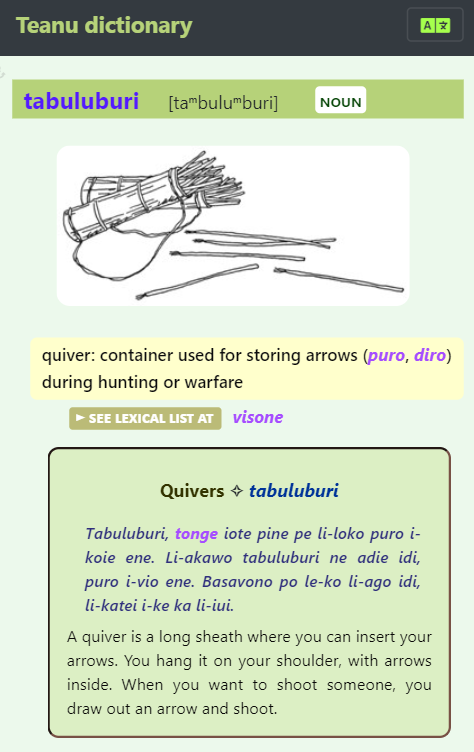
Welcome to the 2021 online version of my Teanu – English dictionary!
Teanu (a.k.a. Puma or Buma) is an Oceanic language spoken on the island of Vanikoro, in the province of Temotu, on the eastern tip of the Solomon Islands. With about 800 speakers, it is the largest language spoken on the island: it has now replaced the two other languages Lovono and Tanema, which are only remembered by a handful of elders.
I am proposing here the first dictionary ever published of Teanu – including lexical data from the highly endangered languages Lovono and Tanema.
- François, Alexandre. 2021.
Online Teanu–English dictionary,
with equivalents in Lovono and Tanema.
Electronic publication. Paris: CNRS.
→[http://tiny.cc/Teanu-dict]
A dictionary of Teanu
This dictionary of Vanikoro languages focuses on the main language Teanu, yet includes also data from the two endangered languages Lovono and Tanema. Its 1880 headwords (1450 entries, 330 subentries) take their source in my field notes and text corpora, collected during my short time working in Vanikoro. The dictionary features a total of 2800 definitions, bearing witness to the rich polysemies of Teanu words.
These few snapshots provide an overview of how lexical entries are presented in the dictionary:
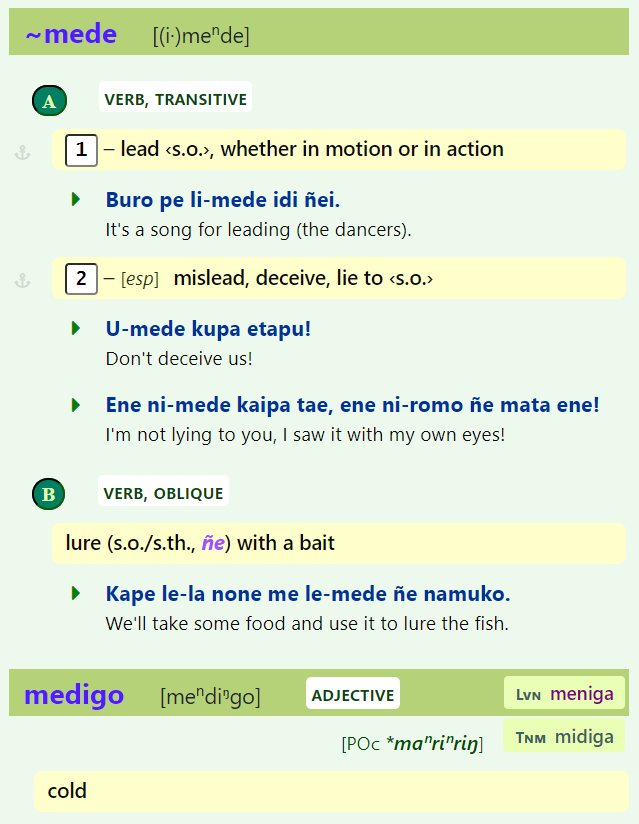
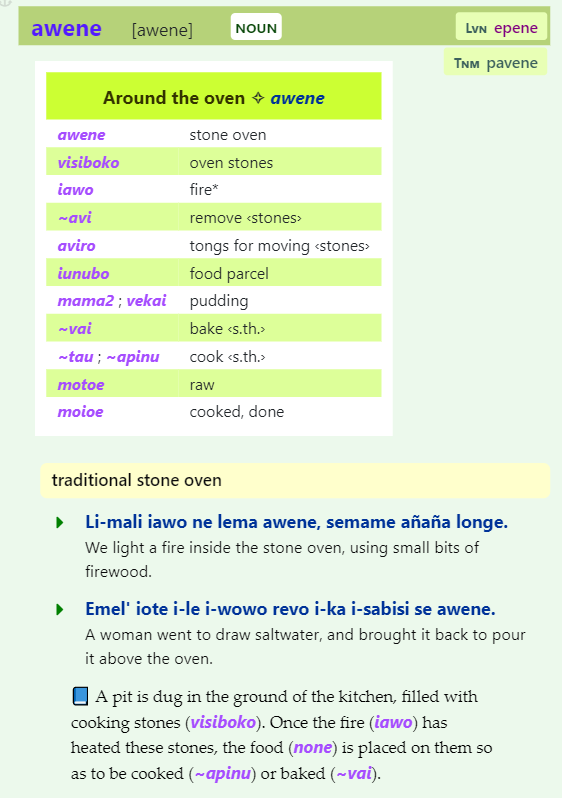
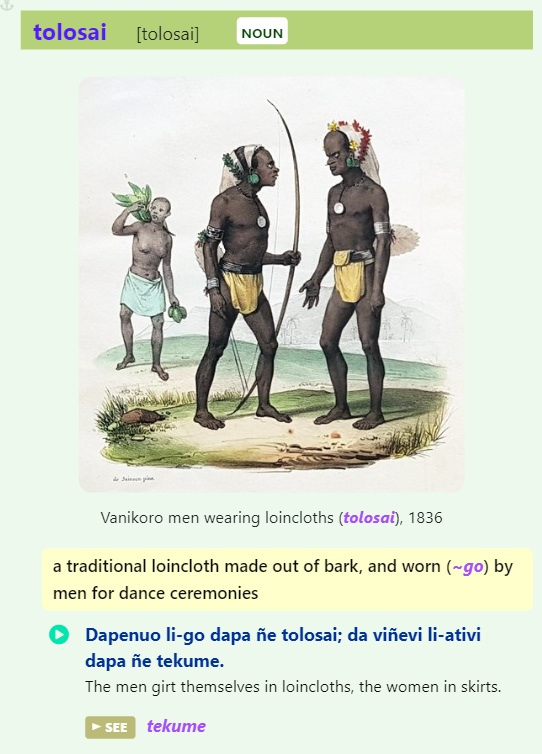
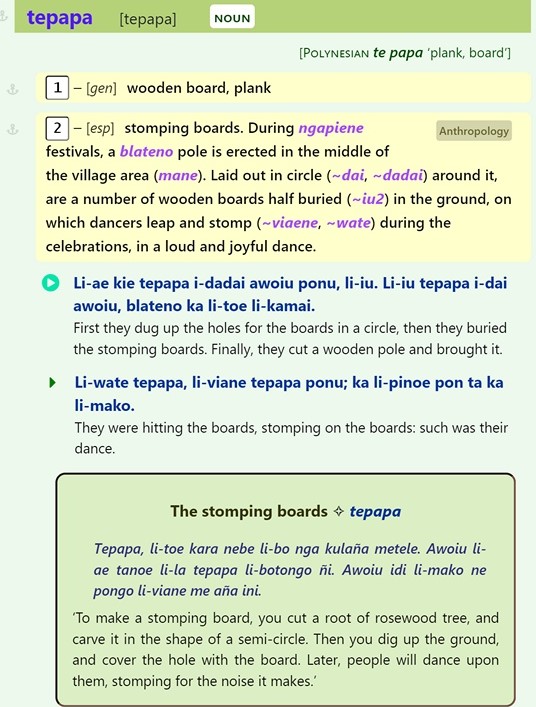
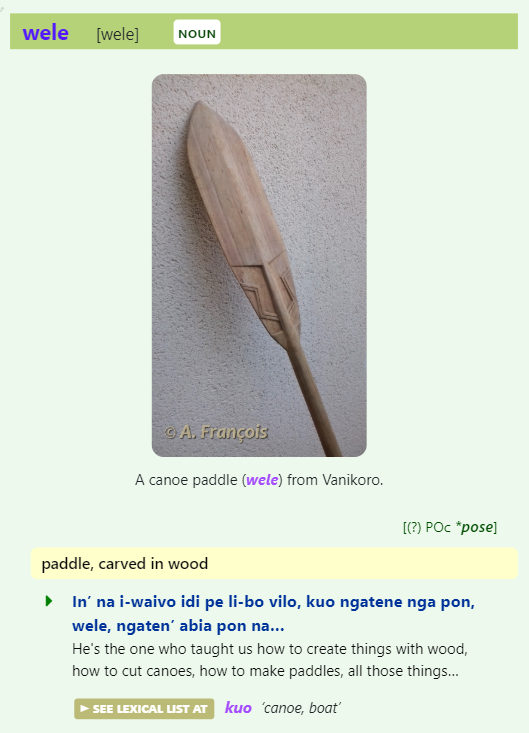
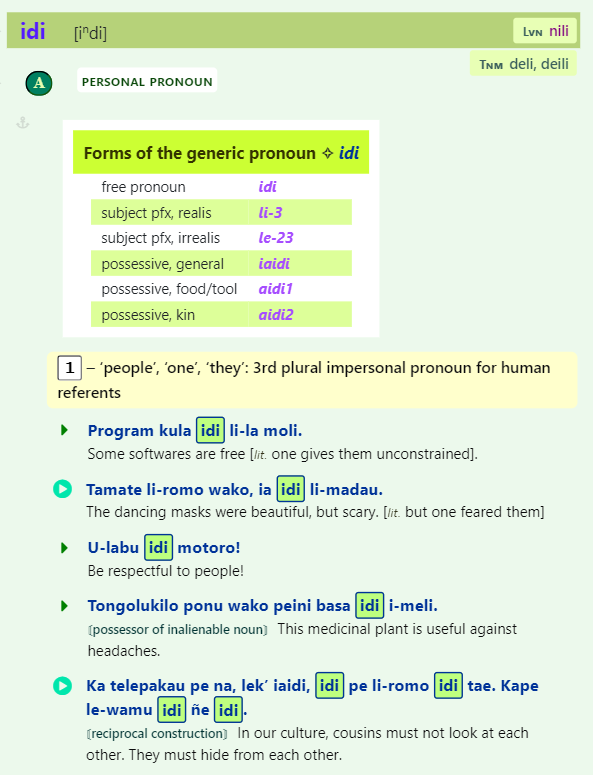
Feel free to use the search engine, in the page's top-right corner. It will search for words (or strings of characters) in English or in Teanu:
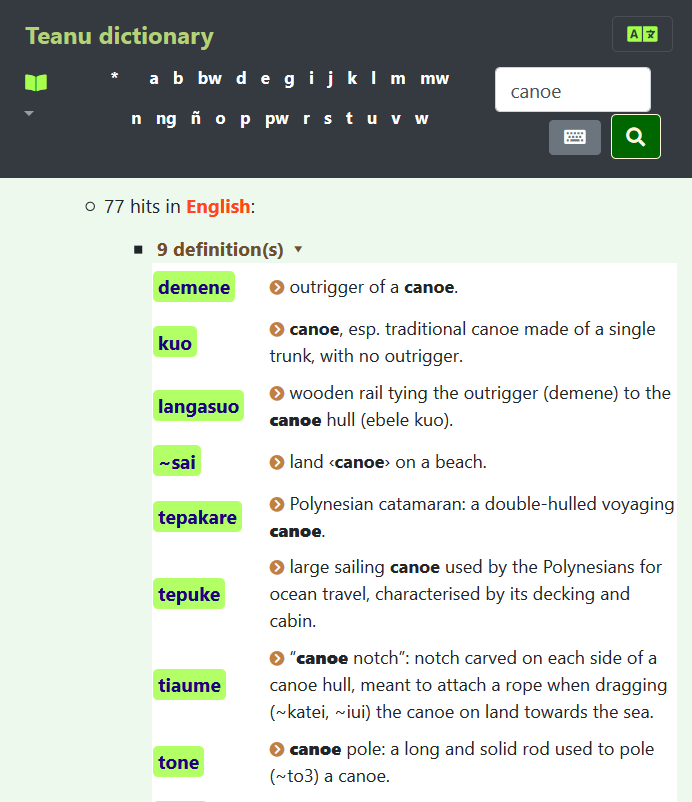
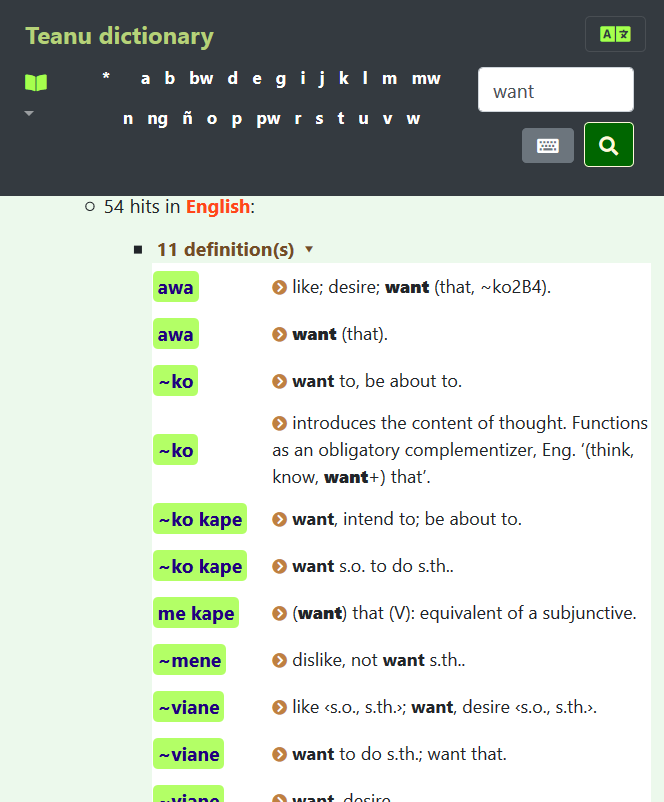
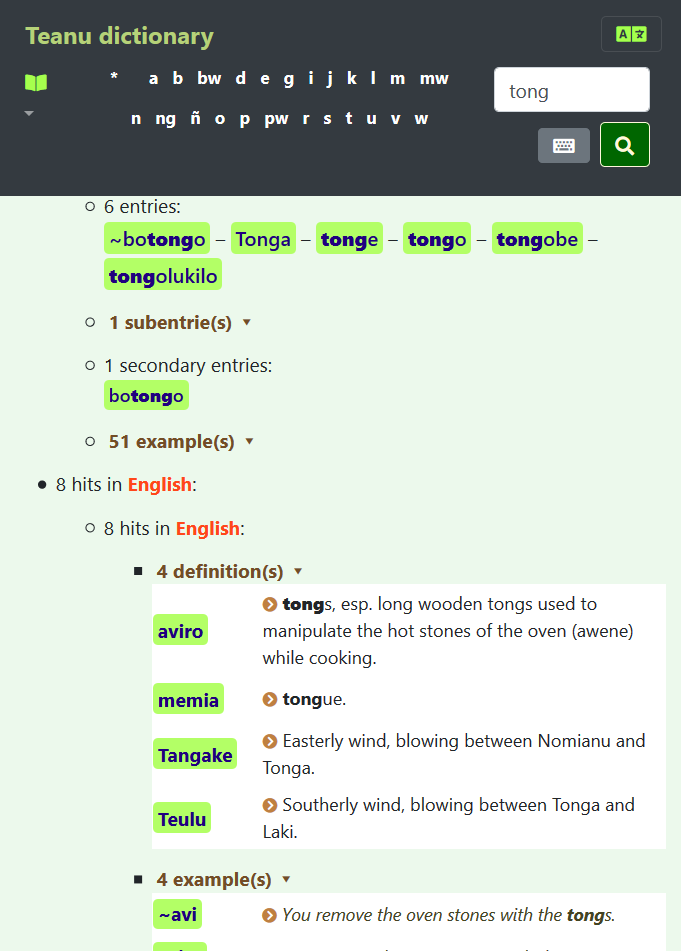
Technical note
I write the contents of this dictionary using the free software Toolbox. I regularly convert my Toolbox files to XML, using a Python script written (initially for my Mwotlap dictionary) by two IT engineers – respectively Céline Buret for Pylmflib, and Benjamin Galliot for Lexika – (with the support of LabEx EFL in 2016 and 2017). Clément Plancq (Lattice-CNRS) wrote the script for the search engine. I personally contribute to all segments of the chain: Lex, Python, Xml, Xslt, Js, Css, Html.
Academic publication
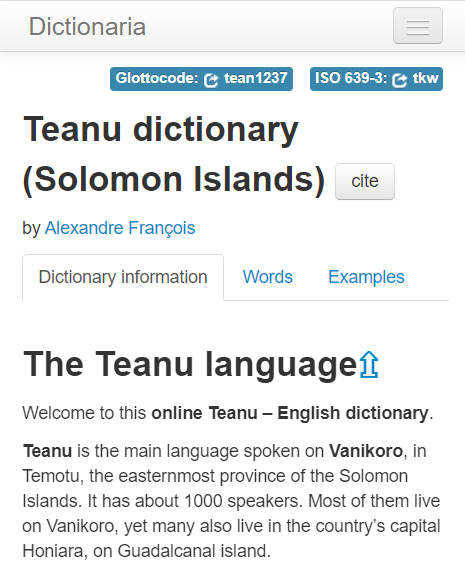 In November 2021, this Teanu dictionary became a peer-reviewed academic publication. It was released as an entry in Dictionaria, a journal-like collection of online dictionaries edited by Iren Hartmann, Barbara Stiebels and Martin Haspelmath:
In November 2021, this Teanu dictionary became a peer-reviewed academic publication. It was released as an entry in Dictionaria, a journal-like collection of online dictionaries edited by Iren Hartmann, Barbara Stiebels and Martin Haspelmath:
Teanu dictionary (Solomon Islands).
Dictionaria 15. 1–1877.
[doi:10.5281/zenodo.5653063]
The contents of the Dictionaria release is identical to that of my Lexica version (this page). The two versions differ mostly in their formatting and display options (layout, search engine, etc.) — e.g. compare the entry webwe ‘troca, armband’ on Lexica with the one on Dictionaria. While Lexica may be more fluid to navigate, one advantage of the Dictionaria interface are its permanent URLs, which can provide a better citation format. Finally, the Dictionaria publication features a ![]() detailed introduction that includes a grammar sketch of Teanu.
detailed introduction that includes a grammar sketch of Teanu.





